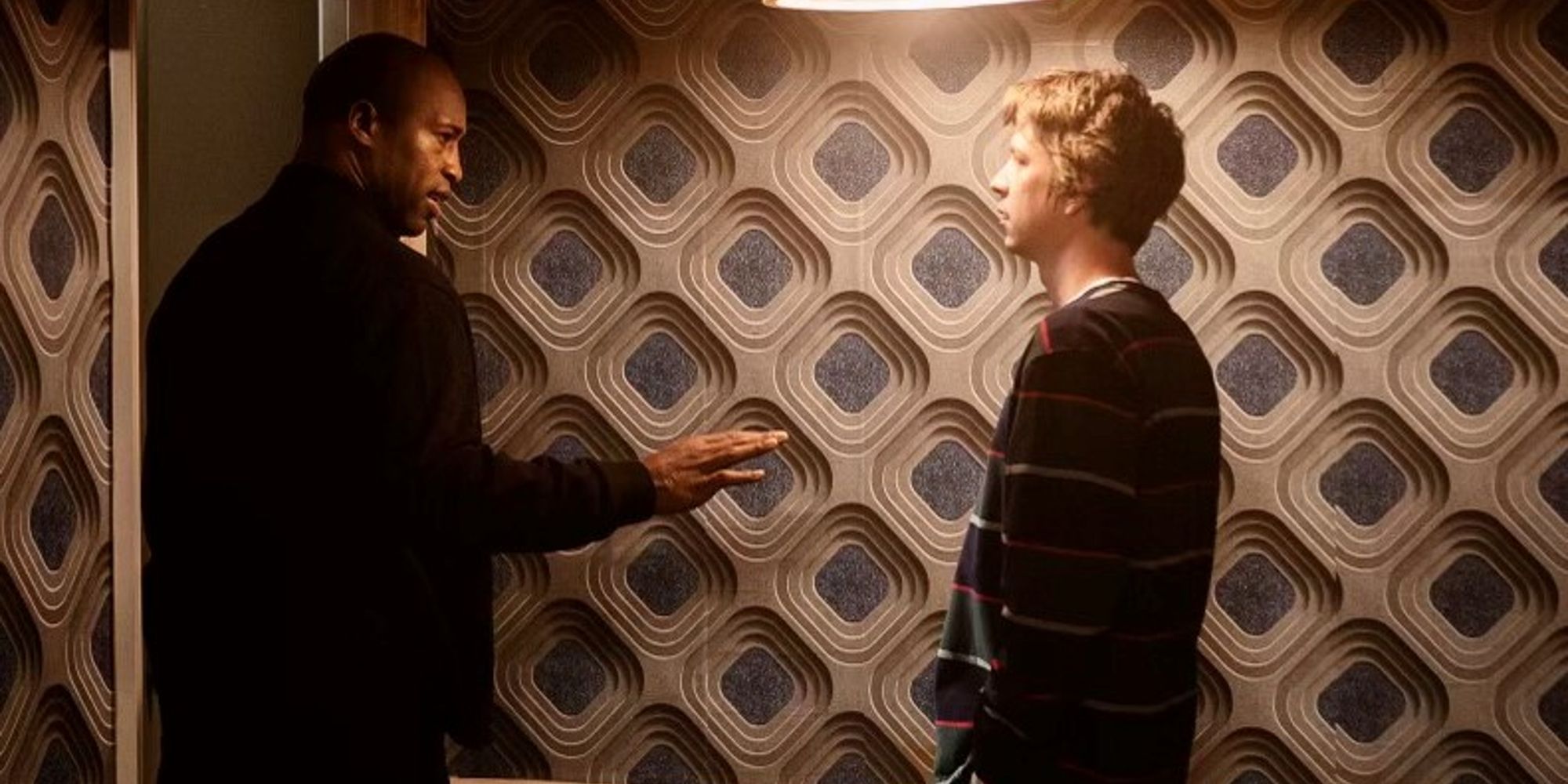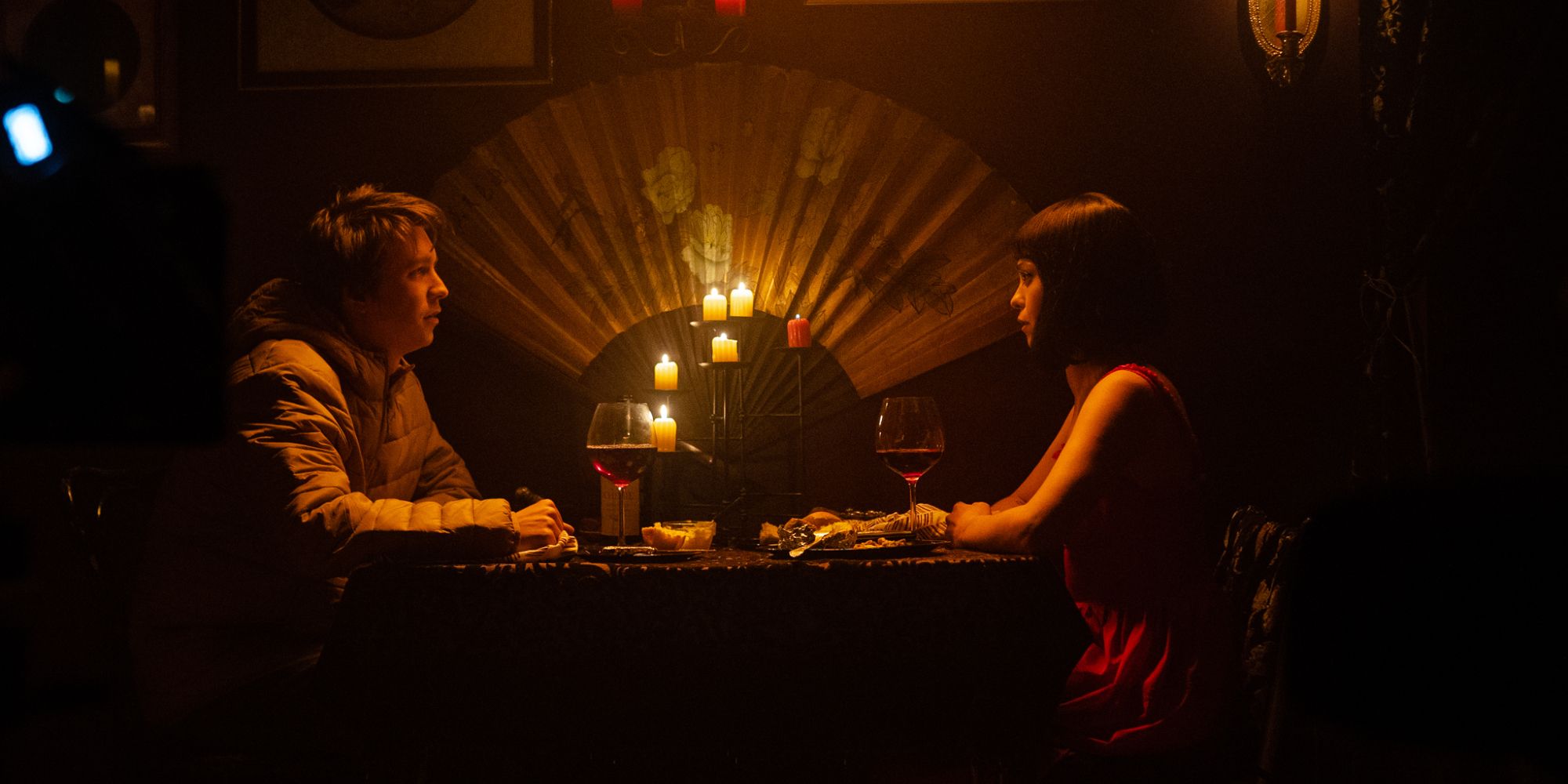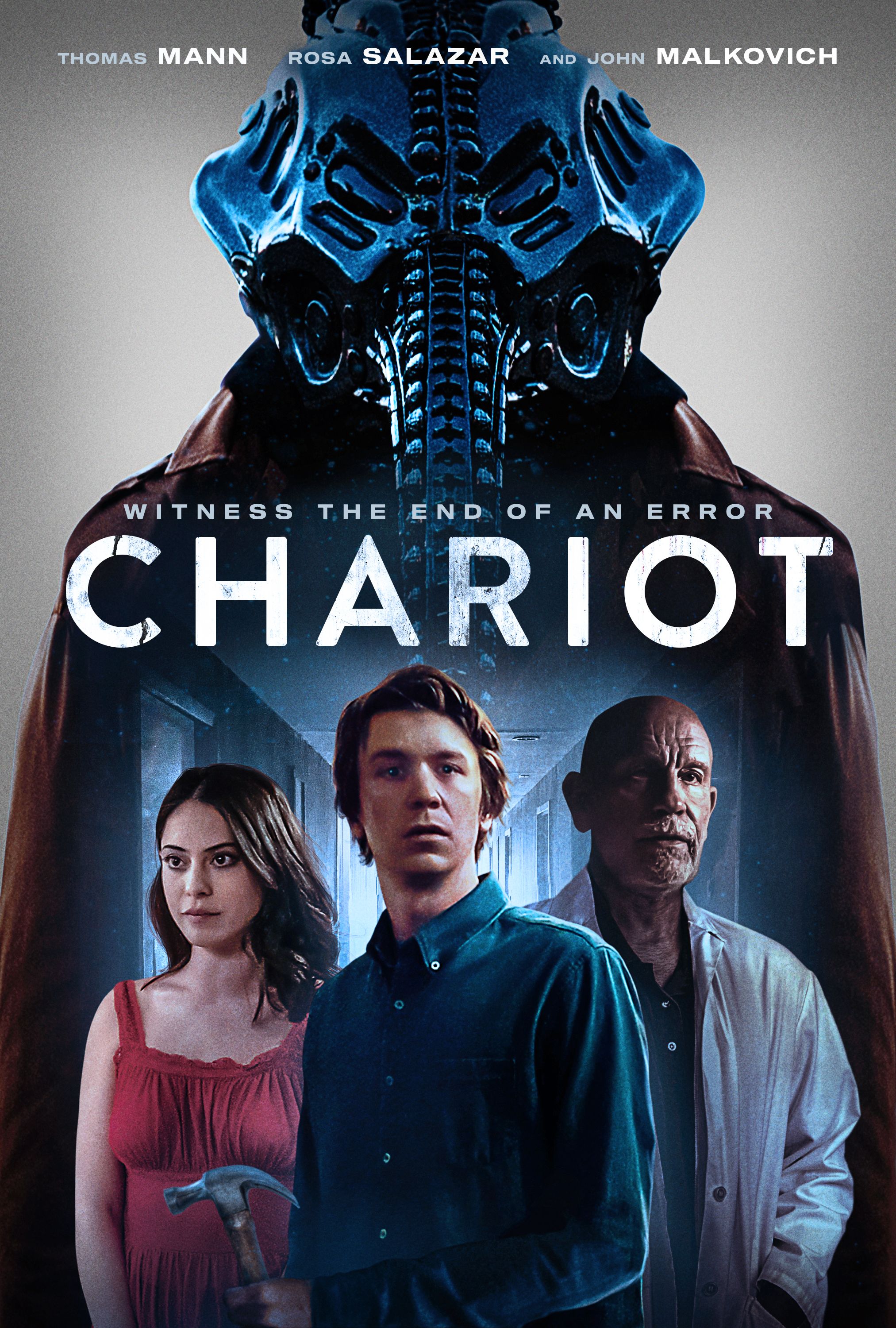Oftentimes, the trickiest elements of a movie to nail are the ones that seem intangible: atmosphere, pacing, tone, those features of the viewing experience that appear to materialize spontaneously but are actually the culmination of several sustained choices. Establishing and maintaining one tone can be tricky enough, but some stories aim to combine — or, even more challenging, shift between — two or more, and the films and filmmakers that succeed are among the medium's most celebrated. Those that try and fail to strike the proper balance, while not as enjoyable to watch, are almost as interesting to critique; case studies of how to end up on the wrong side of a thin line separating masterworks and misfires. Chariot, a befuddling movie from writer-director Adam Sigal that presents as unsure of its own intentions, is one of these. Stuck somewhere between puzzle film and quirky comedy, between imitating David Lynch and parodying him, it draws its audience in with the overtures of a compelling mystery only to leave them stranded in what is fundamentally a failure of tone.
It is worth mentioning that the official synopsis for Chariot is far more transparent about the plot than the movie itself ever is (the trailer, doing its best to hint at narrative coherence, is forced to pull from a monologue delivered in the last five minutes), but here goes: the enigmatic Dr. Karn (John Malkovich) specializes in guiding unwitting patients through the process of reincarnation. When his new charge, Harrison (Thomas Mann), who comes in having experienced a maddeningly mundane recurring dream almost 5000 times without relief, encounters and instantly connects with Maria (Rosa Salazar), the psychiatrist recognizes a rare glitch in system. This woman is someone Harrison loved in a previous life, and if Dr. Karn doesn't intervene fast, their meeting has the potential to irrevocably derail his future.
This summary, which places Malkovich's character at the center, is fundamentally misleading — the acclaimed actor appears in only a handful of scenes. Except for a prologue set in the 1800s (which seems to reference the ending of 2001: A Space Odyssey), the movie belongs to Mann's Harrison, and with him as their surrogate, the audience is kept in the dark about the reincarnation element until the end. His dream, a brief scene from his childhood that is only remarkable for adding an attic to his home where there was none, presents as a mystery that needs solving. After seeking out Dr. Karn to cure him of this dream, Harrison moves into a dingy apartment in the Lafayette, a building that, as Maria informs him, "collects unusual people." He encounters oddness that ranges from the eccentric to the impossible. It is here that Lynch's work, particularly Mulholland Dr., emerges as an influence and, importantly, it all registers as weird to Harrison, too. Something is going on, and there are times when Chariot seems to want its viewers invested in unraveling that mystery.
There are also long stretches, however, where Sigal seems unconcerned with providing any answers. Maria is the voice of this impulse within the film, framing the strangeness as a kind of Lafayette normalcy and encouraging Harrison to embrace it, which he pretty much does. There is a looseness to their scenes together that plays like an off-beat romance, but the framing device layered overtop makes it hard to enjoy them for what they are, as the viewer continues to comb each moment for clues. Chariot sometimes seems like a parody of art films like Mulholland Dr. and 2001 that rely on abstraction to reach for meaning, but more sinister turns in the third act suggest the movie is indeed committed to its story. And yet, even amid this late tension, some sequences are so ridiculous that they cannot possibly be taken seriously. The push-and-pull of this proves frustrating — even more so in light of the conclusion, which leaves many of the viewer's questions unanswered.
Since tone is the product of a convergence of artistic choices, the audience's uncertainty of how to feel at any given moment has its roots in multiple places, but the script is the most guilty here. On top of falling apart under the slightest questioning of how this world is actually supposed to work, the movie repeatedly frames Dr. Karn as having malicious intent, creating expectations that (based on its synopsis) it never planned to deliver on. Ultimately, what moments do flash in Chariot are not enough to overcome the feelings of confusion and aggravation its viewers are left with, and it's hard to argue that any enjoyment one gets from picking it apart was worth the experience of watching it in the first place.
Chariot releases on demand, digital, and in theaters Friday, April 15. The film is 90 minutes long and is rated R for language, some sexual material, and drug use.




